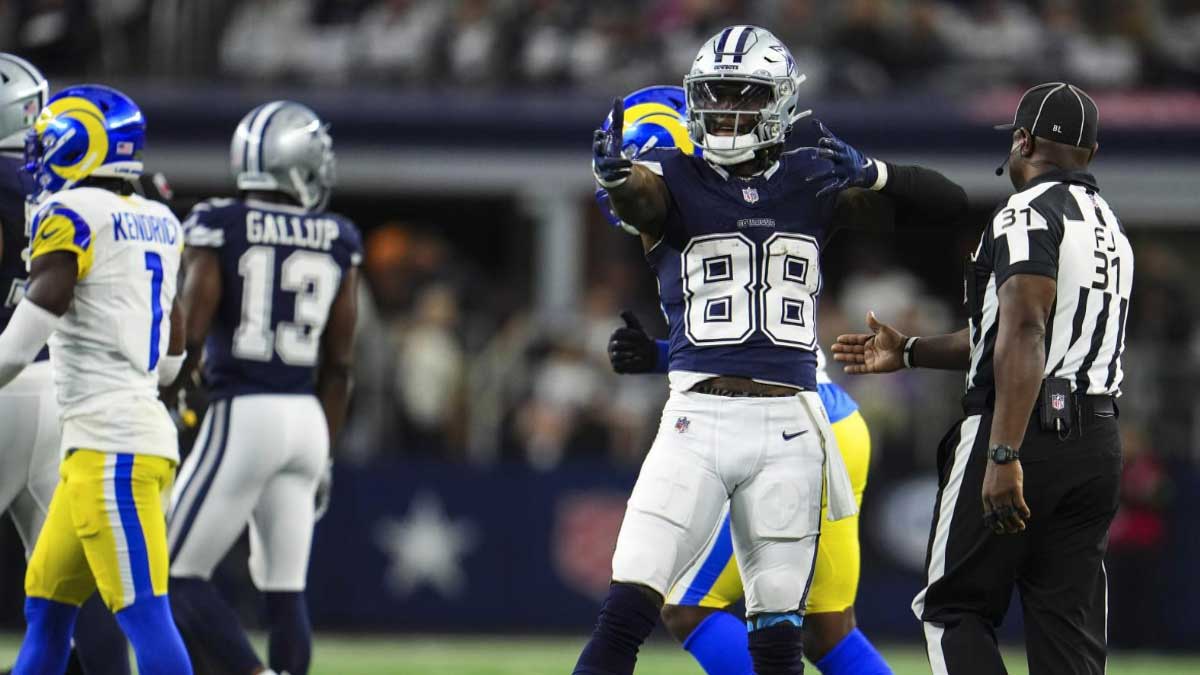- Home
- Billionaires
- Investing Newsletters
- 193CC 1000
- Article Layout 2
- Article Layout 3
- Article Layout 4
- Article Layout 5
- Article Layout 6
- Article Layout 7
- Article Layout 8
- Article Layout 9
- Article Layout 10
- Article Layout 11
- Article Layout 12
- Article Layout 13
- Article Layout 14
- Article Sidebar
- Post Format
- pages
- Archive Layouts
- Post Gallery
- Post Video Background
- Post Review
- Sponsored Post
- Leadership
- Business
- Money
- Small Business
- Innovation
- Shop
Recent Posts
NFL Allows Private Equity to Hold Up to 10% of Teams

The NFL has recently opened the door to private equity ownership, allowing private equity firms to acquire minority stakes in NFL teams. This decision, approved by the league owners, marks a significant shift in the financial landscape of the league and provides team owners with a new avenue to generate substantial revenue. The introduction of private equity ownership is expected to make team sales more accessible, especially in light of the dramatic increase in team valuations over recent years.
Under the newly approved agreement, private equity groups can own up to 10% of any given NFL team, with the minimum stake set at 3%. This flexibility in ownership allows for a range of investment opportunities, catering to different levels of interest and financial capability among private equity firms. Additionally, these firms can hold stakes in up to six NFL teams simultaneously, provided they retain their investments for at least six years. This long-term commitment is designed to ensure stability and continuity within the league, even as ownership structures evolve.
Despite this significant change, the daily operations of NFL teams, including the roles of coaches and players, are unlikely to be directly affected. The league has maintained several important ownership restrictions to preserve the traditional structure of team management. For instance, the total number of owners per team is capped at 25, and the controlling owner must hold a minimum of a 30% stake in the team. These restrictions are intended to prevent any single entity from exerting disproportionate influence over a team’s operations and to ensure that the teams remain in the hands of committed, long-term stakeholders.
The move toward private equity ownership comes at a time when NFL team valuations have seen a substantial increase. From 2022 to 2023, the average value of an NFL team rose by 14%, reflecting the league’s growing financial strength and the increasing market demand for sports franchises. As of August 2023, the average NFL team was valued at $5.1 billion, with the Dallas Cowboys leading the pack at an astounding $9 billion. The New England Patriots and the Los Angeles Rams followed, with valuations of $7 billion and $6.9 billion, respectively.
This surge in valuations is partly due to the significant costs associated with running an NFL team, particularly the expenses related to stadium construction and maintenance. Stadium projects have become increasingly common and costly, with many new venues being built over the past decade. In fact, five new NFL stadiums have been constructed in the last 10 years, each costing well over $1 billion. With more stadiums planned in the coming years, private equity investments could provide much-needed capital to help owners manage these substantial expenses.
In addition to stadium costs, the introduction of private equity ownership could also influence the broader financial strategies of NFL teams. By bringing in private equity funds, teams may have more flexibility in managing their finances, potentially leading to more aggressive investments in player acquisitions, marketing, and other key areas. However, the league’s existing rules and regulations are likely to limit any drastic changes, ensuring that the core values and competitive balance of the NFL remain intact.
The private equity funds approved to purchase stakes in NFL teams include some of the biggest names in the industry. Among them are Ares Management, Arctos Partners, and Sixth Street. Additionally, a consortium consisting of Blackstone, Carlyle, CVC Capital Partners, Dynasty Equity, and Ludis has also been granted approval to invest in NFL teams. These firms bring considerable financial resources and expertise to the table, potentially reshaping the financial landscape of the league.
The involvement of these private equity firms could lead to significant financial gains for NFL team owners. According to reports from NFL.com, owners could earn hundreds of millions of dollars from private equity deals, which would make team sales more feasible and attractive in a market where valuations continue to soar. This could be particularly beneficial for owners looking to sell their teams, as the infusion of private equity capital may facilitate smoother and quicker transactions.
The recent sale of the Washington Commanders illustrates the potential impact of these changes. The team was purchased by billionaire Josh Harris and his investment group in a $6.05 billion deal, which included a $200 million earn-out. Under the NFL’s rules, Harris was required to raise at least $1.8 billion to secure a minimum 30% stake in the team. Prior to this sale, the Denver Broncos held the record for the most expensive NFL team sale, fetching $4.6 billion in 2022.
As the NFL continues to evolve, the introduction of private equity ownership represents a significant milestone in the league’s history. While the full impact of this change remains to be seen, it is clear that private equity will play a crucial role in shaping the future of the NFL, providing new opportunities for investment, growth, and financial success. The league’s decision to embrace private equity ownership reflects its commitment to maintaining its position as a dominant force in the sports industry, while also adapting to the changing dynamics of the global economy.
Recent Posts
Categories
- 193cc Digital Assets2
- 5G1
- Aerospace & Defense46
- AI37
- Arts3
- Banking & Insurance11
- Big Data3
- Billionaires446
- Boats & Planes1
- Business328
- Careers13
- Cars & Bikes76
- CEO Network1
- CFO Network17
- CHRO Network1
- CIO Network1
- Cloud10
- CMO Network18
- Commercial Real Estate7
- Consultant1
- Consumer Tech180
- CxO1
- Cybersecurity68
- Dining1
- Diversity, Equity & Inclusion4
- Education7
- Energy8
- Enterprise Tech29
- Events11
- Fintech1
- Food & Drink2
- Franchises1
- Freelance1
- Future Of Work2
- Games141
- GIG1
- Healthcare78
- Hollywood & Entertainment186
- Houses1
- Innovation42
- Investing2
- Investing Newsletters4
- Leadership65
- Lifestyle11
- Manufacturing1
- Markets20
- Media193
- Mobile phone1
- Money13
- Personal Finance2
- Policy567
- Real Estate1
- Research6
- Retail1
- Retirement1
- Small Business1
- SportsMoney33
- Style & Beauty1
- Success Income1
- Taxes2
- Travel10
- Uncategorized8
- Vices1
- Watches & Jewelry2
- world's billionaires415
Related Articles
Tesla Recalls 700,000 Vehicles Over Tire Pressure Issue
Tesla has announced its latest recall of nearly 700,000 vehicles in the...
By 193cc Agency CouncilDecember 20, 2024MicroStrategy Stock Rallies on Nasdaq 100 News
Shares of MicroStrategy surged on Monday following the announcement that the company...
By 193cc Agency CouncilDecember 16, 2024Stanley Recalls Millions of Mugs After Burn Injuries
In a significant recall, Stanley, the well-known brand behind popular stainless steel...
By 193cc Agency CouncilDecember 12, 2024Adobe Shares Drop 12% After Lowering Revenue Outlook
Shares of Adobe experienced a significant drop of over 12% on Thursday,...
By 193cc Agency CouncilDecember 12, 2024















Leave a comment